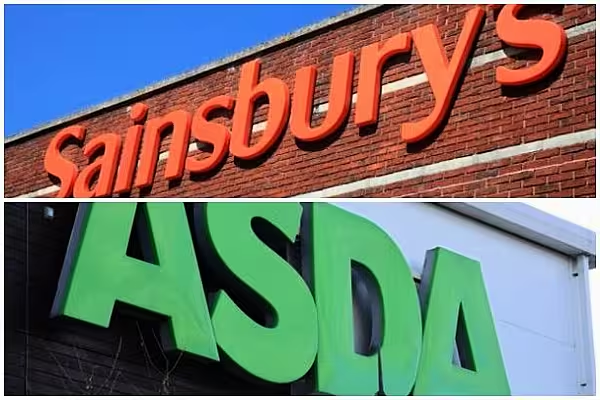British supermarkets Sainsbury's and Asda said they were willing to sell 125-150 stores to get their proposed merger past the regulator - a number well short of what the Competition and Markets Authority (CMA) has said it is looking for.
The two groups also said the UK competition regulator's provisional view on Sainsbury's agreed £7.3 billion ($9.60 billion) takeover of Walmart owned Asda amounted to 'prohibition in all but name'.
The companies said the CMA's divestments proposal 'appears to have been designed to be impossible to implement.'
The CMA last month said its initial view was that Sainsbury's agreed Asda deal should be blocked in the absence of the sale of a large number of stores, or even one of the brands.
The regulator identified 629 areas where there could be a substantial lessening of competition (SLC) in supermarkets, 290 areas where online competition could be reduced and 65 local overlaps in smaller convenience stores.
Sainsbury's and Asda's response to the CMA's notice of possible remedies was published in full on Friday.
The two groups said the CMA's analysis was 'fundamentally flawed' but said they were willing to divest 125-150 supermarkets, a number of convenience stores and some petrol stations. They said their proposal was based on 'a more credible finding of SLCs.'
They also said a divestment of an online grocery operation 'is not necessary or proportionate.'
Price Cuts Pledge
The disposal details follows Sainsbury's and Asda's pledge, made on Tuesday, to deliver £1 billion of annual price cuts if the deal went through.
Given the CMA's concerns that the combination could lead to higher prices most analysts and competition lawyers believe it is highly unlikely the deal will proceed.
"The proposed number of store sales is unlikely to be enough to appease the competition regulator," said Sophie Lund-Yates, analyst at Hargreaves Lansdown.
Sainsbury's, Britain's second-biggest supermarket chain, and third ranked Asda agreed the deal last April, aiming to overtake market leader Tesco. It also would give Walmart a way to exit Britain, one of the weakest performers in its portfolio.
The CMA must publish its final report by 30 April.
If the final report differs little from its provisional findings, Sainsbury's and Asda's last chance would be to challenge the ruling through the Competition Appeal Tribunal, a specialist judicial body, which can throw it back to the CMA.
If approved, the deal would create a company with annual revenue of about $66 billion, more than 2,800 stores and a grocery market share of around 31%.
Though Sainsbury's has been Britain's No. 2 player since November 2015, given current sales run rates it could lose that status to Asda on 2 April when the next industry market share data is published.
News by Reuters, edited by Donna Ahern Checkout. Click subscribe to sign up for the Checkout print edition.





